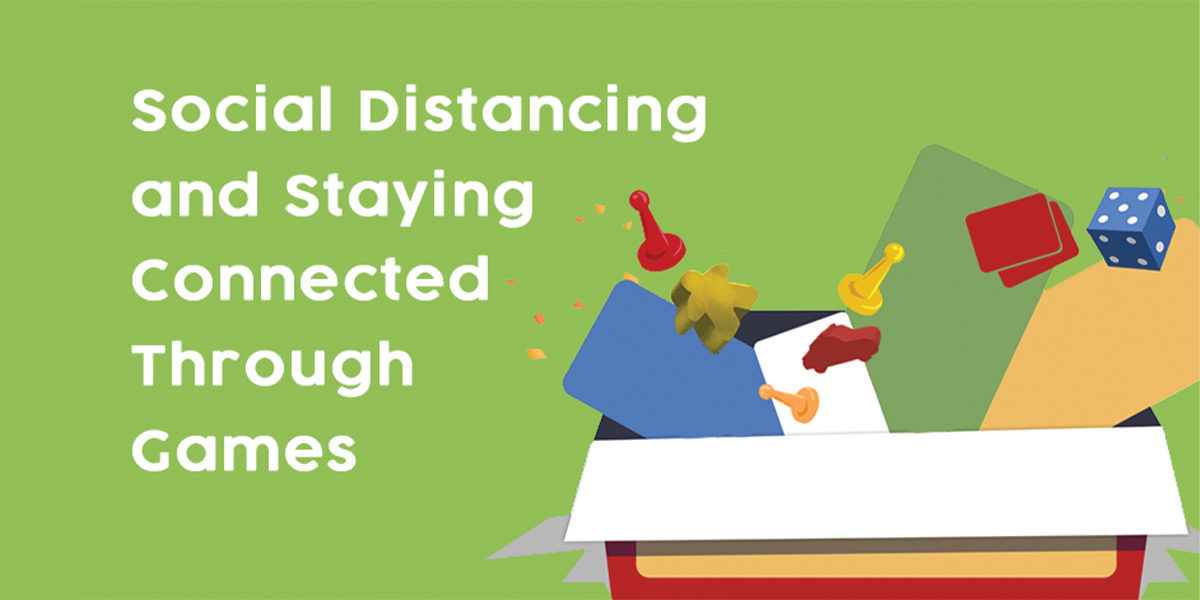
Social Distancing and Staying Connected Through Games
Playing games together at home can relieve stress, bring joy and deepen connection. Here's why you should turn to games during this time of social distancing.
At iThrive Games Foundation, we are passionate about games and we know that games can help us feel more connected to each other. As we all seek to do our part to #flattenthecurve of Covid-19, game play may increasingly become a part of daily life. Whether you're a teen whose school has closed or an adult who is working from home, many are practicing social distancing. Playing games together at home can relieve stress, bring joy, and foster connection.
Relieving Stress and Bringing Joy
Numerous studies suggest that playing video games relieves stress. A 2016 study shows that whether a video game was collaborative or competitive, players' stress levels declined over time during gameplay. Another study found that video game players reported turning toward games after stress, and that they were able to recover from stress as a result of play.
In addition to research, we love listening to youth voices. Our teen blogger, Eleanor Mather, has written about her experience of using video games to help relieve stress. She has shared the useful life lessons she has experienced while playing games, whether she's enjoying Super Mario Maker 2 and remembering that it's not about winning, it's about creativity or learning lessons about the value of working toward a goal through playing Animal Crossing.
Our Curated Games Catalog can help you find new games to try out. The catalog links our game recommendations to some of the skills that are important for all of us to practice. Check out which games you can play to strengthen your skills for kindness, curiosity, and empathy.
There are so many video games now, too, that can be played together (online) but apart. Playing these can help you stay connected and have fun with friends even when you're practicing social distancing. Check out our recent blog on engaging with your teen in game play.
Fostering Connection During Social Distancing
In addition to video games, iThrive staff loves playing tabletop games. We all work remotely, so when we are together physically, we use games to reconnect. We have had so many shared moments of true connection (and many deep belly laughs) from sitting down at a table and playing a game together. And all of us play games with our families and friends when we are at home. Some of our favorites are:
- The Mind is a collaborative game where the only way to win is as a team. Players are not allowed to communicate verbally. Cards are dealt and players must each card in numeric order without making a peep or using hand gestures. We have had a blast trying to interpret and respond accurately to each other's nonverbal cues. (And the post-game analysis is sometimes the best part.)
- Happy Salmon is a game that gets you up and out of your seat as you try to be the first one to get rid of all of your cards. This one will have your whole family laughing as you yell out card categories and run around the table switching places. The only change during this Covid-19 issue might be bumping elbows instead of slapping arms when you get the happy salmon card. (This one's competitive, so be warned!)
- Team 3 is a cooperative game where three players work together to build a structure. The only catch is only one person can touch and move the pieces to build the structure (and they can't open their eyes), only one person can shout orders, and those orders are dependent upon the plans the one person who can't speak is looking at. Oh, and it's timed. This game calls on your nonverbal communication skills, your spatial awareness, and your patience. It is such fun to discover how to work together and communicate as you play.
Whether its parents and teens, or siblings and friends, grabbing a controller and playing together can help you share a moment of joy, stress relief, and connection despite social distancing.


